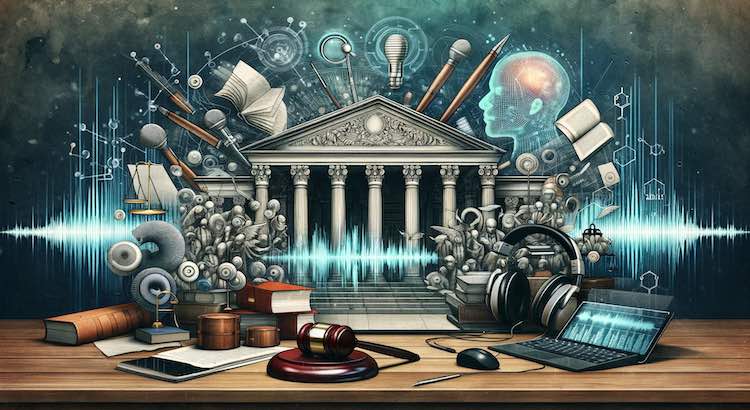Legal Transcription Challenges and Practical Solutions
Transcription plays a central role in the legal field. Every court hearing, deposition, or attorney-client meeting often needs a written record. Accurate transcripts support legal arguments, keep proceedings transparent, and ensure everyone has equal access to the facts. With so much at stake, even a small mistake or delay in legal transcription can cause confusion, missed deadlines, or even case disruptions.
Despite their importance, legal transcriptions can be tough to get right. Below, we break down the main obstacles and provide simple, actionable solutions to help legal professionals achieve reliable transcripts every time.
Common Challenges in Legal Transcription
Legal transcription faces unique hurdles that set it apart from general transcription work. Here are some of the biggest obstacles:
1. Complex Legal Terminology
- Legal language uses specialized words, phrases, and doctrines most people do not encounter in everyday speech.
- Misunderstanding even one legal term can affect the entire meaning of a statement and may lead to errors.
- According to a report, incorrect legal transcription can cause costly delays or even legal disputes (2022).
2. Poor Audio Quality
- Recordings from courtrooms, depositions, or client meetings often have background noise or unclear speech.
- Overlapping voices, technical problems, or poor microphones make accurate transcription harder.
- In a recent survey, 47% of legal transcribers cited bad audio as their top obstacle (2022).
3. Difficulty Identifying Speakers
- Legal proceedings often involve several people speaking—lawyers, judges, witnesses, and court staff.
- Overlapping conversations or unclear transitions make it hard to match spoken words to the correct person.
4. Strict Confidentiality Requirements
- Legal work involves private or sensitive details that must stay secure from start to finish.
- A data breach or accidental sharing of confidential transcripts could cause reputational harm or legal penalties.
5. Tight Deadlines
- Courts and legal teams operate on short timelines.
- Transcribers may need to turn around files in less than 24 hours, increasing the pressure to work fast without errors.
Effective Solutions for Legal Transcription Challenges
Despite these difficulties, you can take simple steps to make legal transcription faster, more accurate, and more secure.
1. Specialized Training for Transcribers
- Choose transcriptionists with legal backgrounds or encourage ongoing training in legal terminology and procedure.
- Regular workshops or courses boost familiarity with the language, increasing accuracy and decreasing turnaround times.
- Reliable transcription services often assign trained specialists to legal files.
2. Invest in Better Audio Recording
- Use professional-grade microphones and record in quiet locations to limit background noise.
- Encourage speakers to state their name before talking and avoid speaking over each other.
- Follow best practices for recording to get clear, high-quality audio files.
3. Use Technology Wisely
- Modern automated transcription tools and AI transcription subscriptions can save time and boost initial accuracy.
- Human editors should always review, edit, and proofread automated transcripts to catch legal nuances.
- Develop a process that combines AI efficiency with the attention to detail that only humans can provide.
4. Strong Speaker Identification Methods
- Set clear rules for courtroom and meeting recordings, such as saying names before speaking.
- Use video references when available to help match voices to faces.
- Transcribers should flag any unclear moments so legal teams can clarify.
5. Enforce Confidentiality and Security
- Use secure platforms for uploading legal transcripts and file sharing.
- Choose transcription providers that use encryption, multi-factor authentication, and comply with privacy laws.
- Regular audits and employee training help keep data safe.
6. Practice Rigorous Quality Control
- Use multi-step editing. After the first draft, a second transcriber or editor should review and correct the text.
- Consider transcription proofreading services for extra peace of mind.
- Always have clients double-check the final transcript if possible.
7. Manage Deadlines Efficiently
- Plan ahead for urgent projects by setting realistic turnaround expectations and scaling resources during busy periods.
- Reliable providers share a clear timeline and let you track progress online.
- Transparent transcription pricing means no surprises with rush orders.
How GoTranscript Can Help
GoTranscript offers a full range of solutions designed for the unique needs of legal professionals. Our transcription services pair trained legal experts with modern technology to create accurate, confidential, and timely transcripts for court hearings, depositions, and more.
- Get instant quotes and order through our secure online portal.
- Explore closed caption, subtitling, and legal translation options.
- Choose automated or human-reviewed transcripts, with flexible deadlines.
- Transparent pricing and top-notch data security.
To face legal transcription challenges with confidence, trust GoTranscript for solutions built on experience and accuracy at every step.



















 Verified Order
Verified Order